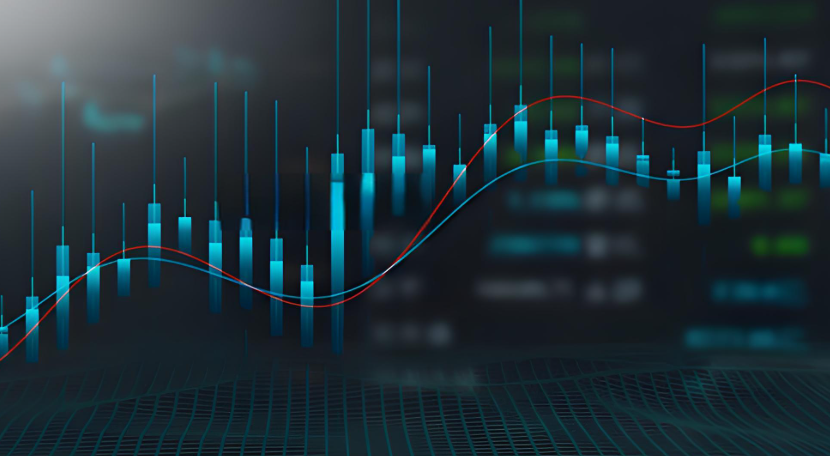Won Weakness Fuels Inflation in South Korea
Advertisements
The recent turmoil in South Korea has taken a toll on the country's economy, with the South Korean won facing severe depreciation pressuresThis situation has coincided with a surprising acceleration in consumer inflation, posing a significant threat to a nation that heavily relies on imported food and energyThe backdrop to this economic distress includes a slowdown in export growth and political instability sparked by President Yoon Suk-yeol's recent emergency decree, which has dampened domestic business confidenceAs a result, November's industrial output declined more than expected, prompting economic alarms that have been ringing since December.
According to a report from Statistics Korea released on Tuesday, the consumer price index rose by 1.9% year-on-year in December, an increase from November's 1.5% and above the 1.7% that economists had anticipatedAdditionally, data released just days earlier indicated that the industrial output index for November fell by 0.7% on a seasonally adjusted basis from the previous month, when it had remained stable
Economists had expected a more moderate decline of 0.4% for that same periodThis sharp drop in industrial output is particularly alarming, as it is closely tied to South Korea's export trends and domestic demand levelsA steeper-than-expected decline could signal a softening in economic recovery for the country.
The implications of the recent industrial output and inflation data are crucial for the South Korean central bank, complicating its monetary policy decisionsFollowing consecutive rate cuts in October and November, the unexpected rise in inflation suggests limited room to lower the benchmark interest rate in the coming monthsPolicymakers are also wary of the fallout from Yoon's brief imposition of an emergency decree, which has led to political unrest and significantly undermined domestic business confidenceThe prospect of reduced economic growth is looming over South Korea as these conditions persist.
The renewed acceleration in inflation, coupled with the won's continued depreciation, threatens to exacerbate the situation
- Why H-Shares of State Banks Face Scrutiny
- The Stock Market Celebration is Coming to an End
- Rate Cuts on Hold Amid Strong Economic Data
- Lincoln China: 2024 Initiatives and 2025 Outlook
- Carbon Neutrality: An ESG Investment Case
Detailed data from Statistics Korea reveals that the prices of alcoholic beverages and tobacco fell by 0.4% year-on-year in December, while prices for food and non-alcoholic beverages unexpectedly increased by 2.5%. Entertainment costs rose by 1.2%, and utility prices increased by 1.7%. Analysts from Shinhan Investment have indicated that the implications of a weaker won on inflation could intensify in the coming monthsHowever, the predominant concern remains the ongoing decline in consumer confidenceGiven the signs of weakness in domestic production and consumption, January could present a suitable opportunity for the central bank to consider rate cuts.
The recent catastrophic aviation accident further complicates South Korea's challengesOut of the 181 passengers on board, all but two tragically lost their lives, prompting acting President Choi Sang-mok to declare a week of mourning from now until January 4th
This somber period may severely impact consumer sentiment as the nation grapples with grief and loss.
In addition, the South Korean political scene has been in turmoil since Yoon Suk-yeol's unexpected announcement of an emergency decreeThis instability has greatly reduced overall business confidence among South Korean enterprises, with many small and medium-sized businesses expressing concern about the potential delay in government subsidies resulting from the ongoing political upheaval surrounding leadershipBefore the aviation disaster, Bank of Korea Governor Lee Chang-yong had already cautioned that next year's economic growth might not meet the previously forecasted rate of 1.9%.
Economists largely agree that the increasing weakness in private spending, the pressure from U.Stariffs, and the deteriorating consumer confidence are central factors that might prompt the Bank of Korea to accelerate easing measures next year

Additionally, the monetary policy actions of global central banks, including the U.SFederal Reserve, in the coming months are likely to exert significant influence on the South Korean central bank’s decision-making process.
As for expectations surrounding South Korea’s crucial pillar of economic activity—export growth—economists predict that the country will continue to experience an upward trend in its export figures for DecemberThis would mark the 15th consecutive month of year-on-year growth for an economy that is heavily reliant on exportsHowever, some economists have cautioned that, aside from increases in semiconductor exports, global demand for South Korean products is likely to weaken under the strain of U.StariffsThis suggests that export growth rates may significantly slow in the next year.
Concerns are mounting regarding the potential for higher tariffs imposed by the U.S
government on more countries globallyAs market apprehension about these developments intensifies, economists broadly predict that South Korea’s export growth momentum could be significantly stifled in the coming year.
The South Korean won has fallen to its lowest level since 2009, underscoring market anxieties about the potential impact on economic growthAccording to Bloomberg Economics’ economist Kwon Hyo-seong, the ongoing depreciation of the won may also restrict the Bank of Korea's ability to cut interest rates in support of the economy.
During the COVID-19 pandemic, the South Korean government implemented extensive stimulus measures to bolster economic growth, which subsequently led to a sharp rise in consumer pricesNow, many central banks around the world, including the Bank of Korea, feel confident enough to relax their restrictive monetary policies, as their aggressive rate hikes have helped alleviate inflationary pressures.
Leave a comments